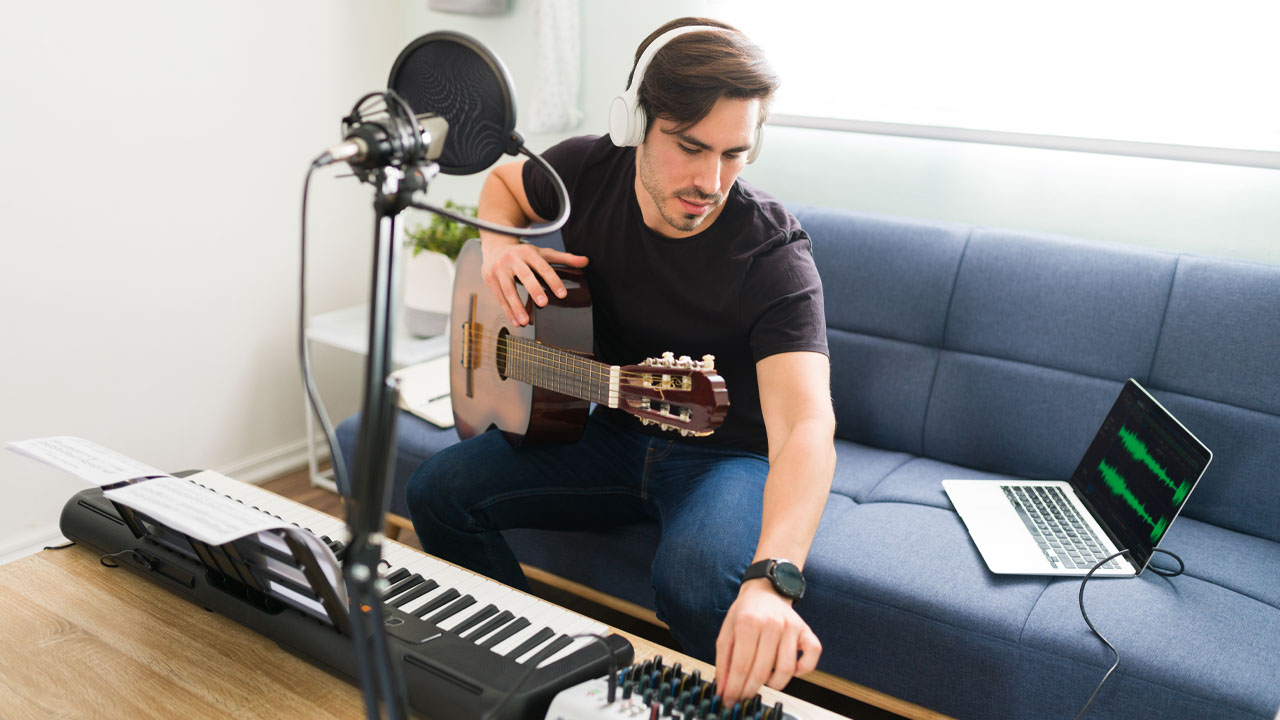The intersection of artificial intelligence (AI) and music is a burgeoning field that is transforming how people learn, create, and interact with music. AI-powered music learning is not only making musical education more accessible and personalized but also opening new avenues for creativity and innovation.

The Evolution of Music Education
Traditionally, learning music has involved face-to-face instruction with a tutor, attending classes, or self-study using books and videos. While effective, these methods often come with limitations such as high costs, fixed schedules, and a lack of personalized feedback. AI is poised to address these challenges, democratizing music education by providing tailored, interactive, and cost-effective learning experiences.
How AI Enhances Music Learning
Personalized Learning Pathways
AI systems can analyze a student’s strengths, weaknesses, and ai music learning progress, creating customized learning paths that adapt to their needs. This level of personalization ensures that learners receive the right material at the right time, maximizing their potential and keeping them motivated.
Instant Feedback and Assessment
One of the most significant advantages of AI in music learning is its ability to provide real-time feedback. AI algorithms can analyze a student’s performance, identifying errors in pitch, rhythm, and timing. This immediate assessment helps learners correct mistakes on the spot, accelerating their progress.
Interactive and Engaging Content
AI-driven platforms offer interactive lessons that go beyond traditional methods. Virtual tutors, gamified learning experiences, and augmented reality (AR) applications make learning music more engaging and fun. These tools can simulate playing with a band, offer challenges, and even use AI to generate accompaniment for solo practice sessions.
Access to a Wealth of Resources
AI can curate vast amounts of musical content, providing learners with access to a broad range of songs, tutorials, and exercises. Machine learning algorithms can recommend pieces that match a student’s skill level and musical preferences, ensuring a diverse and enjoyable learning experience.
Leading AI Music Learning Platforms
Several platforms are at the forefront of integrating AI into music education:
- Yousician: This popular app uses AI to listen to users play and provides instant feedback, guiding them through lessons and practice sessions tailored to their skill level.
- Simply Piano: Developed by JoyTunes, Simply Piano utilizes AI to help learners master piano skills. It offers real-time feedback and adjusts the difficulty of exercises based on the user’s progress.
- SmartMusic: A comprehensive practice tool for musicians, SmartMusic uses AI to provide immediate feedback on performance. It also includes a vast library of sheet music and interactive practice tools.
- Musico: This AI-driven platform allows users to compose music interactively. By analyzing user inputs and preferences, Musico can suggest chord progressions, melodies, and arrangements, acting as a collaborative partner in the creative process.
The Future of AI in Music Education
The future of AI-powered music learning looks promising, with continuous advancements in technology expected to enhance its capabilities. Some anticipated developments include:
- Improved AI Tutors: As AI algorithms become more sophisticated, virtual tutors will offer even more precise and nuanced feedback, closely mimicking human instructors.
- Enhanced Collaboration: AI could facilitate more collaborative learning experiences, connecting students with peers and mentors globally, fostering a community of learners and creators.
- Integration with Wearable Tech: Wearable devices equipped with sensors could provide additional data on a learner’s performance, such as finger positioning and muscle tension, further refining the feedback process.
- Expansion to New Instruments and Genres: AI’s versatility will likely lead to the development of learning tools for a broader range of instruments and musical styles, catering to diverse musical interests.
Conclusion
AI-powered music learning is revolutionizing the way we approach musical education. By offering personalized, interactive, and engaging learning experiences, AI is making music education more accessible and effective than ever before. As technology continues to evolve, we can expect AI to play an increasingly significant role in nurturing the next generation of musicians, composers, and music enthusiasts.
